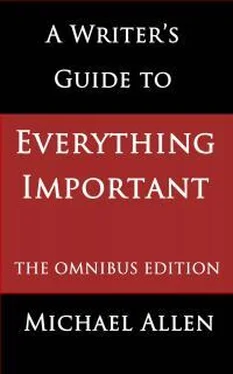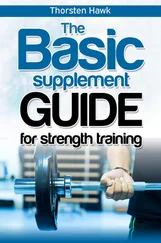There are some writers who pretty much fall into that class of person themselves, and they are writing for precisely that audience.
A couple of years ago I read a blog post which listed twenty self-published authors who had each sold over 2,500 copies of their books in the previous month. Each writer was probably earning about $5,000. Per month.
So I went on to Amazon and took a careful look at all twenty of these people. One in particular caught my eye. She had then published about ten books. But these were ‘books’ only in the sense that they were about 10,000 to 15,000 words long – novellas, perhaps. And they were written with what can only be described as a cheerful disregard for the normal niceties of spelling, punctuation and grammar.
When you looked at the readers’ reviews for this writer, on Amazon, they divided into two groups. There were those who raved about the story, and how exciting it was (five stars). And there were those who complained bitterly about the frankly illiterate nature of the prose (one star).
But… This woman was selling books! Above 2,500 copies a month.
I’ve been keeping an eye on this writer ever since. She is still churning out material, and the last time I looked she had over 200 separate publications listed on Kindle. Some of these were Spanish translations of her English originals, some were audio versions. And when I read the free samples of some of the earlier output, I could see that an editor had been through the stories and had largely put right all the more obvious mistakes.
You will note that I have not given the author’s name, and you may think that’s because I disapprove of her. Not at all. Quite the opposite. I just don’t want to appear to be picking her out as particularly bad.
Here is a lady who, ten years ago, or even five, would not have had a hope of hell in getting her 10,000-word fantasy stories published. First, because no one was publishing stories of that length. Second, because they failed the literacy test. No magazine editor would read more than the first page.
But then… Along came the digital revolution. And Kindle self-publishing. And the lady could publish whatever she pleased. An opportunity presented itself to her, and she seized it with both hands. And when she found out that some people were criticising her stuff, she fixed it.
Her prose is still far from polished – in my arrogant opinion. In fact it’s pretty rough old stuff. But this lady is living proof that content is King. And Queen too, for that matter. Content holds all the aces. In today’s fiction market, it’s the story that counts.
Far from disapproving of this writer, I take my hat off to her. Long may she flourish. She finds readers and entertains them. And she sells a lot more books than I do. Dammit.
Nevertheless, I do have to tell you that the unpolished writer is the exception that tests the rule. And the rule stands. The rule is that, to succeed as a writer – however you define the term succeed – you ideally need a good firm grasp of grammar, punctuation, and spelling. So here’s a short test. I first developed it for my earlier how-to book, How to Write a Short Story that Works .
Purpose of sections 6, 7, and 8 is to enable the writers who take it to gain a clearer understanding of the strengths and weaknesses of their present writing style.
6. Testing your skills
By now it is just conceivable that you may be wondering whether you yourself have any shortcomings in the spelling and grammar departments. And how is your vocabulary? Fully familiar, are we, with some of the more notorious pitfalls for the unwary?
I am not going to attempt the task of labelling your knowledge of English as good, bad, or indifferent. But if this book is to be of any practical value I have to make it plain to you that you are unlikely to make progress as a writer without having at least a rudimentary awareness of some of the more obvious potential errors. You need, above all, a feeling for the nuances of the English language. It is not for nothing that English possesses so many words of almost, but not exactly, the same meaning: it is to enable writers to communicate facts and feelings more precisely.
Here are a few test questions to enable you to discover whether you are 100 per cent on the ball in this department – or whether you might, perhaps, still have a few things to learn.
Vocabulary
Do you know the difference between the following pairs of words? Can you explain the difference, in each case, in a couple of brief sentences? If you can’t, check the meanings in a dictionary.
aural and oral
appraise and apprise
canvas and canvass
complement and compliment
discreet and discrete
loath and loathe
interment and internment
prescribe and proscribe
principal and principle
stationary and stationery
Why am I banging on about these similar but different words? Because the spell checker on your word processor won’t help you if you write complimentary when you mean complementary. For that matter, your spell checker won’t help you if you write see when you mean sea, or no when you mean know, or patients when you mean patience…. And on and on and on.
Spelling
Spelling is difficult to test in a printed book, but set out below are twenty commonly misspelt words. Half of them are correctly spelt, and half are not. Can you identify the wrong ones? (Answers in section 7.)
accommodate
agressive
appalling
aquire
benefitted
besiege
concensus
desparate
detatched
gauge
harassed
millennium
minuscule
momento
neccessary
niece
seperate
supercede
surprise
threshold
wilful
Grammar and punctuation
Finally, if you’re not already fed up with this game, here are a few sentences which contain some elementary errors of grammar or punctuation, or both. Can you see what is wrong? (Answers again in section 7.)
1. After inspecting a guard of honour, President Reagan’s motorcade moved into the centre of Moscow.
2. Its a long way from London to Wiltshire, the train toots it’s whistle with relief when it finally arrives.
3. She was the oldest of the two sisters.
4. Between you and I, he is quite wrong, and I would of told him so if he hadn’t been so big.
5. Through hard work the coach affected a considerable improvement in the teams performance.
Some old favourites
The English language does not stand still (though many of the older generation wish it would). It changes and develops: new words are added, old ones drop out of use, and even spellings can vary over the years, particularly where hyphens are concerned. In my youth, dining-room was a term which had a hyphen, as here; now it is more ‘correct’ to print it as two separate words. Fire-arm, hyphenated in Oxford dictionaries when I began to write crime fiction, is now firearm.
Despite all this flux, there are a number of traditionally controversial subjects on which you need to take a position. Where do you stand, for instance, on the question of split infinitives?
How do you decide whether to use that or which when a relative pronoun is called for?
When you need to use the past tense of learn, are you going to write learned or learnt? And spelled or spelt?
In the case of verbs ending in a syllable which sounds like eyes, do you spell the suffix -ize or -ise? In other words, is organize correct, or is organise better?
In order to form a view on these matters, you will need to establish a good working relationship with a number of standard reference books: these are listed in section 11, below. But if you’re remotely interested in my own views, they are as follows:
Читать дальше












